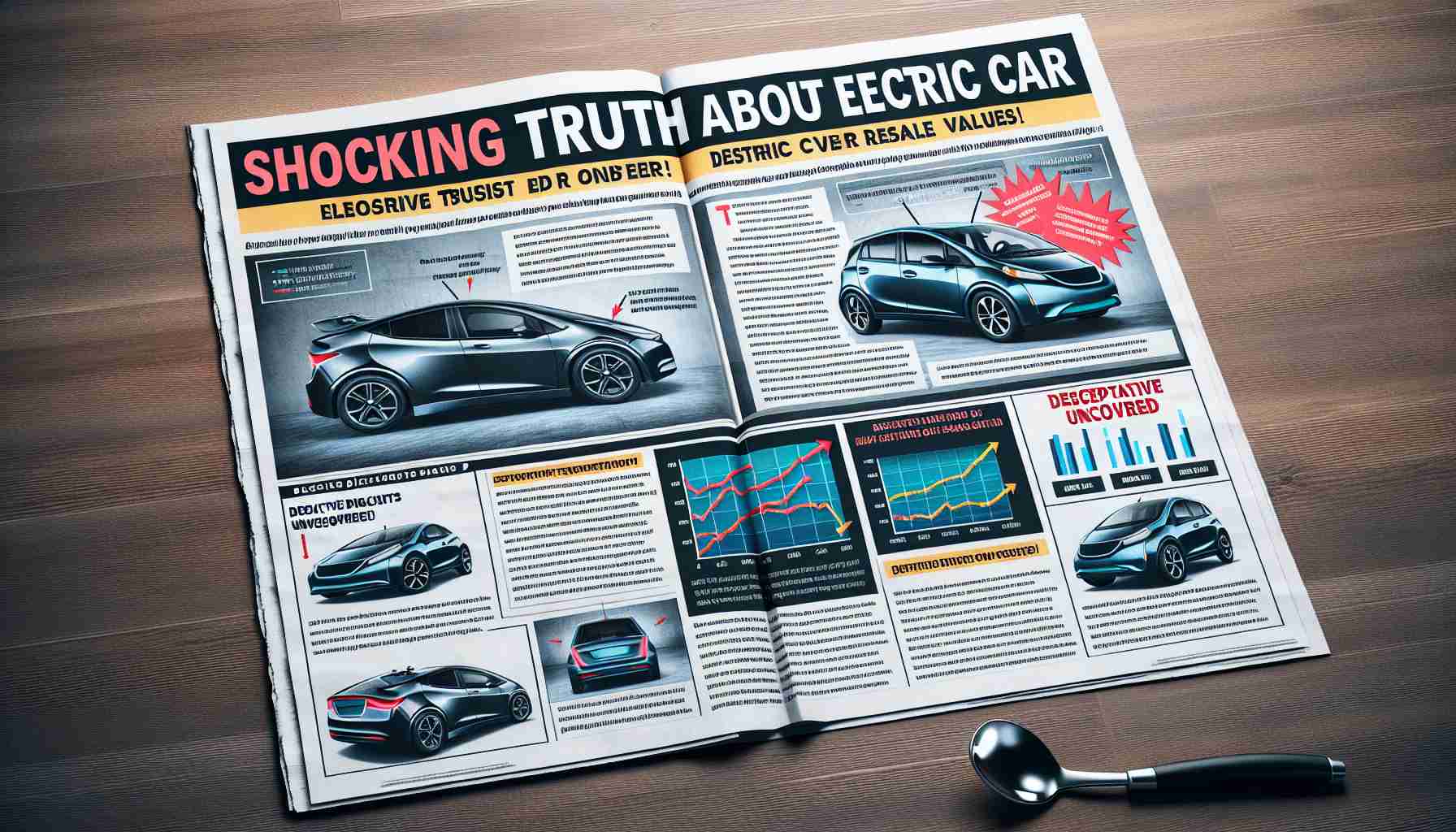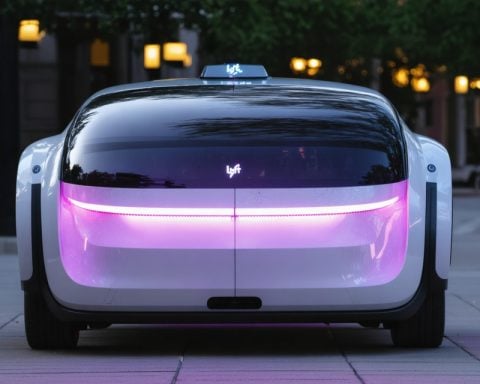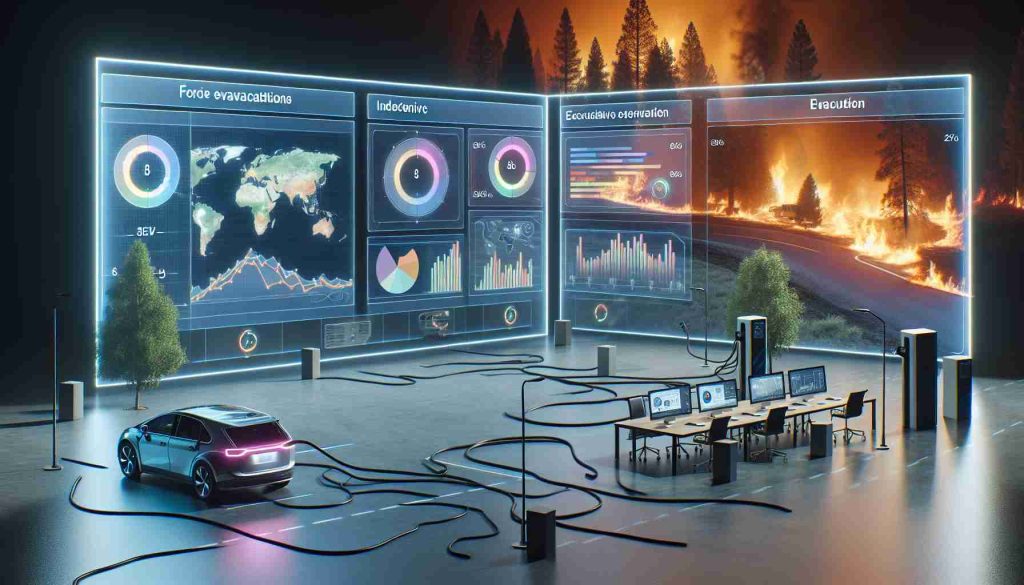The Rapid Decline of EV Value
The electric vehicle (EV) market is facing surprising challenges that could impact buyers significantly. Industry experts, including Philip Nothard from Cox Automotive, highlight that while appealing discounts and incentives attract consumers, these short-term benefits may have grave implications for the long-term value of used electric vehicles. An influx of new battery electric vehicles (BEVs) heavily discounted leads to a faster depreciation once these vehicles return to the second-hand market.
Mark Bassford from Auto Data Solutions notes that traditional vehicle valuation firms have historically underestimated the resale potential of EVs. These firms relied on previous pricing models based on internal combustion engine (ICE) vehicles, which do not apply to the emerging electric market dynamics.
Current data reveals striking predictions for resale values. For instance, the Tesla Model 3, anticipated to hold 62 percent of its price after three years, is now projected to retain only 55 percent of its original value. Similarly, the Porsche Taycan, initially expected to maintain 65 percent, is now facing a drop to about 45 percent, leading to potential losses exceeding £56,000.
The Vauxhall Corsa Electric is another example, with its projected value plummeting from 46 percent to a mere 29 percent after three years. As buyers navigate this evolving landscape, understanding these trends becomes crucial for informed purchasing decisions.
The Broader Implications of EV Depreciation
As the electric vehicle (EV) market grapples with significant depreciation trends, the impact extends far beyond individual buyer decisions. This unsettling shift not only affects consumers but also reverberates through society and the global economy, raising questions about the sustainability of the booming EV sector.
The rapid decline in EV values could discourage potential buyers, ultimately stalling the momentum toward a greener future. As prices drop, consumer confidence may wane, leading to reduced adoption rates—a critical concern as nations strive to meet ambitious climate targets. Furthermore, if depreciation trends continue unchecked, they could result in greater financial strain on automakers, potentially jeopardizing investments in green technologies.
From an environmental perspective, the situation is equally concerning. Lower resale values may incentivize drivers to hold onto older ICE vehicles, diminishing the anticipated carbon reduction benefits of transitioning to EVs. As more consumers opt for traditional cars due to cost considerations, overall emissions reduction efforts could stagnate.
In terms of future trends, we might witness a shift in how EVs are marketed, emphasizing their long-term ownership potential rather than resale value. This could foster a culture of sustainability, encouraging consumers to view their EV purchases as long-term investments in a cleaner planet, rather than mere financial transactions. The ongoing evolution of the EV market necessitates a vigilant approach to these dynamics, as the decisions made today will shape the automotive landscape of tomorrow.
Shocking Trends in Electric Vehicle Depreciation You Need to Know
The Current State of Electric Vehicle Valuation
The electric vehicle (EV) market is undergoing unprecedented changes that are reshaping consumer expectations and investment decisions. Industry insiders warn that while consumers are drawn to current discounts and incentives offered on new EV models, these offers may mask deeper issues relating to long-term vehicle value. This creates a precarious situation for potential buyers in the second-hand EV market.
Understanding EV Depreciation
Recent trends indicate that the increase in the availability of heavily discounted battery electric vehicles (BEVs) is resulting in sharper depreciation rates once these cars transition to the second-hand market. Philip Nothard from Cox Automotive emphasizes that these price drops are indicative of a larger issue concerning long-term resale potential.
Mark Bassford from Auto Data Solutions points out that traditional valuation models—often based on internal combustion engine (ICE) vehicles—fail to accurately reflect the new dynamics of the electric vehicle segment. As the market evolves, a recalibration of these valuation models is imperative to align with the unique characteristics of EVs.
Striking Predictions for Resale Values
Recent data illustrates a stark contrast in expected versus actual resale values for popular EVs. For example:
– Tesla Model 3: Initially projected to retain 62% of its value after three years, new forecasts suggest it may only retain approximately 55%.
– Porsche Taycan: Once expected to maintain a robust 65%, the value is now projected to dwindle to around 45%.
– Vauxhall Corsa Electric: This vehicle’s projected value has dramatically dropped from 46% to an alarming 29% post three years of ownership.
Such declines in resale values mean that EV owners could face significant financial losses—figures could exceed £56,000 for premium models like the Taycan.
Key Insights and Trends
1. Market Saturation: As more affordable EV models enter the market, competition increases, leading to faster depreciation rates.
2. Incentive Dependence: Consumers are incentivized to purchase new models with heavy discounts, but this reliance can decrease the perceived value of existing vehicles.
3. Consumer Awareness: Understanding these depreciation trends is crucial for consumers looking to invest in EVs, especially given the potential financial pitfalls associated with resale value.
Pros and Cons of Buying EVs
Pros
– Environmental Impact: EVs generally have lower carbon footprints compared to ICE vehicles.
– Lower Operating Costs: Savings on fuel and maintenance can offset some depreciation losses.
– Incentives and Rebates: Ongoing government incentives may make initial purchases more financially attractive.
Cons
– Depreciation: Rapid declines in resale value can negate financial gains from lower operating costs.
– Market Instability: Evolving technology can quickly make older models obsolete.
– Limited Resale Options: As market dynamics shift, finding buyers for used EVs may become increasingly challenging.
Conclusion
As the electric vehicle market continues to mature, potential buyers must remain vigilant regarding the changing landscape of EV values. By educating themselves on current trends, depreciation rates, and market dynamics, consumers can make informed decisions that safeguard their investments.
For more information and updates on electric vehicles, please visit AutoTrader.
















